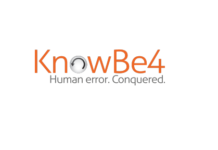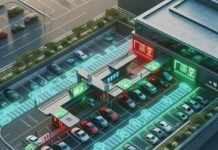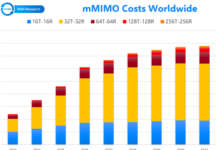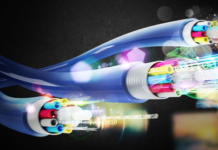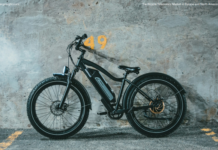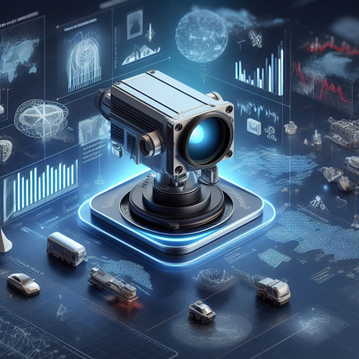
According to an industry analysis conducted by Fact.MR, in 2024, the worldwide LiDAR sensor market is anticipated to reach a value of US$ 2.42 billion and is projected to grow at a remarkable CAGR of 14%, reaching US$ 7.95 billion by 2034. LiDAR sensors are expected to constitute 1% of the global sensor market in 2023.
The integration of IoT technology has sparked revolutionary changes in the global automotive industry. The rise of autonomous vehicles and connected cars is poised to drive increased demand for LiDAR sensors, enabling vehicles to detect obstacles along their routes. With ongoing innovations in vehicle automation and transportation planning, these sensors stand to play a pivotal role in reshaping the automotive landscape.
In the realm of meteorology, the deployment of LiDAR sensors facilitates weather forecasting by providing valuable data to meteorological agencies. As technology progresses, these sensors are becoming more cost-effective and sophisticated, thanks to ongoing advancements in the field. Leveraging LiDAR for generating 3D and 4D images of the environment has demonstrated significant benefits over time.
Key Takeaways from Market Study:
· The global LiDAR sensor market is projected to expand at an impressive CAGR of 14% and reach US$ 7.95 billion by 2034-end.
· The market expanded at 7.8% CAGR from 2019 to 2023.
· Solid-state LiDAR sensors lead the market and their sales are estimated at US$ 1.83 billion in 2024.
· North America led the global market with 27.2% share in 2023.
· The vehicle automation segment is estimated to occupy 9% market share in 2024.
· Based on region, demand for LiDAR sensors is projected to increase at CAGRs of 14.6% and 12.7% in East Asia and Latin America, respectively, during the forecast period (2024 to 2034).
“Growing demand for LiDAR sensors in autonomous and connected cars and advancements in vehicle automation are projected to drive market expansion in the coming decade. Their applications in meteorology are expanding to make accurate weather predictions. Market players are focusing on developing cost-effective technologies, thus contributing to their growing significance,” says a Fact.MR analyst.
Top Key Players are Trimble Inc., Topcon, FARO, Valeo, Ouster, Inc., Waymo, Intermap Technologies Corp., SICK AG, Hexagon AG, Leosphere, Inc., Innoviz Technologies, BEA Group, Teledyne Optech, Velodyne Lidar, RIEGL, Quanergy System Inc.
Competitive Analysis
In the competitive landscape of the LiDAR sensor industry, leading manufacturers like Trimble Inc., Topcon, SICK AG, Velodyne Lidar, and FARO are prioritizing the launch of technologically advanced products. They are employing strategic marketing tactics such as acquisitions and collaborations with other LiDAR companies to bolster production capacities, expand market reach, and secure a larger market share.
Recent News
· Aurora, for instance, bolstered its LiDAR portfolio by acquiring OURS, a LiDAR start-up, in 2022, following its acquisition of another LiDAR start-up named Blackmore in 2019. This strategic move strengthens Aurora’s position in the LiDAR market and enhances its technological capabilities.
· Similarly, Ouster made a significant acquisition by purchasing Sense Photonics, a LiDAR technology start-up, for US$ 68 million in 2021. This acquisition is expected to bolster Ouster’s research and development capabilities, positioning the company for further innovation and market growth.
Market Developments
The global LiDAR sensor market is highly competitive. LiDAR technology has found applications in the augmented reality industry as well. It provides a detailed 3D mapping that enables other systems to integrate this information with their data.
LiDAR is being used by scientists to understand the atmosphere on a deeper level. These sensors provide scientists with information about vegetation cycles. When scientists receive data that show that there is destruction in vegetation, new policies are used to save it.
In the field of engineering and construction, LiDAR sensors are being used to create detailed spatial maps before designing the real structure. This helps them reduce errors and, as a result, saves costs.
More Valuable Insights on offer
Fact.MR, in its new offering, presents an unbiased analysis of the LiDAR sensor market, presenting historical demand data for 2019 to 2023 and forecast statistics for 2024 to 2034.
The study divulges essential insights based on type (airborne including topographic LiDAR and bathymetric LiDAR, terrestrial including mobile LiDAR and static LiDAR), technology (solid-state LiDAR, mechanical LiDAR), application (vehicle automation, digital elevation model, forest planning & management, environmental assessment, transport planning, infrastructure building, cellular network planning, meteorology, others), and end-use industry (automotive, oil & gas, IT & communication, media & entertainment, power & energy, survey & analysis, aerospace & defense, travel & tourism, agriculture & forestry, mining, others), across major regions of the world (North America, Latin America, Europe, East Asia, South Asia & Oceania, and the Middle East & Africa).
These insights are based on a report on LiDAR Sensor Market by Fact.MR.



